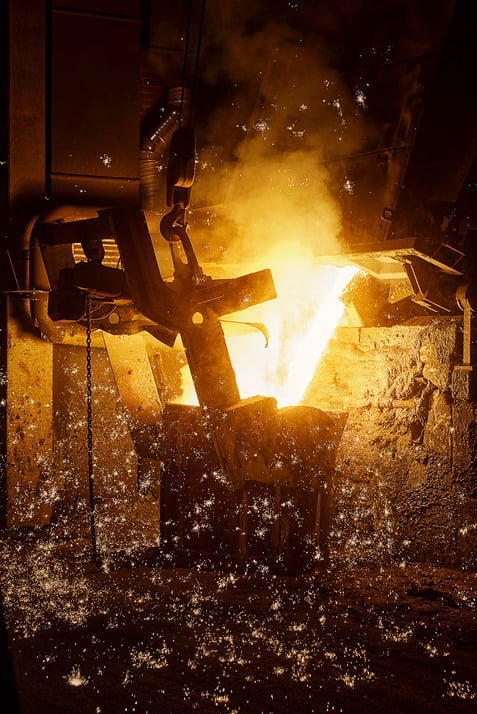BIRN has entered a partnership with IBM and Energi Danmark to regulate our foundry’s electricity consumption. The collaboration will initially consist of a pilot project to relieve the grid and thus ensure a better balance.
BIRN is participating in a pilot project to test the innovative Flex Platform, a green technological solution developed in collaboration with IBM and the Danish electricity supplier, Andel Energi.
By implementing the Flex Platform, BIRN will be able to reduce their energy effect during peak periods, enhancing the security of the electricity supply for neighboring communities and businesses in the Holstebro area. In addition, this initiative will reduce the grid’s reliance on coal and gas-fired backup power plants during critical moments, consequently reducing CO2 emissions.
A recent analysis by the Danish electricity supplier, Energinet, predicts that Denmark’s solar and wind energy production will triple by 2040. As the nation transitions towards renewable energy, the role of companies like BIRN will become increasingly important. By participating in the Flex Platform, BIRN is at the forefront of this transition. Our Group Sustainability Manager, Emil Brodersen, is pleased with BIRN’s ability to increase the security of electricity supply and facilitate the transition to more sustainable energy:
- Energi Danmark and IBM have presented us with an exciting and innovative energy solution, the Flex Platform, which enables us to intelligently adapt our electricity consumption. We will test this solution in a pilot project. We want to help improve the security of supply of green power to other companies and households, but it is also crucial for us that this does not affect our production capacity and quality, as we also have an obligation to our customers, he says.

AI for production safety
The project aims to assess the reduction of power consumption in our melting furnaces. Three furnaces are involved and the effectiveness of using artificial intelligence to accurately predict electricity consumption is being evaluated. Accuracy is vital for balancing the grid, but it is complex due to fluctuating consumption patterns influenced by the materials we use to produce our high-quality cast iron.
- Electricity consumption must be predicted 48 hours in advance – hour by hour. This requires predictability, and in concrete terms, this means that in the future we aim to forecast our order books, production plans, material compositions and much more, says Emil Brodersen.
Finally, a technical examination will be carried out to assess the interaction between the hardware component responsible for controlling the ovens’ temperatures and the Flex Platform software.
- Consumption flexibility is the missing link in Denmark’s journey towards more renewable energy consumption, and BIRN has a big impact to move, so it can really make a difference. That is why it is interesting to bring energy-intensive companies onto the Flex Platform, so that together we can balance future imbalances in the grid, avoid blackouts and reduce CO2 emissions. BIRN is now leading the way among foundries, and we are looking forward to seeing the results from the pilot project, which we hope will inspire other industrial companies, says Trygve Skjøtskift, Digital Energy Innovation Expert, IBM Denmark.
For further information, please contact:
- Press service: Anders Bo Andersen, phone: +45 28 69 83 07 and email: anders@publicity.dk